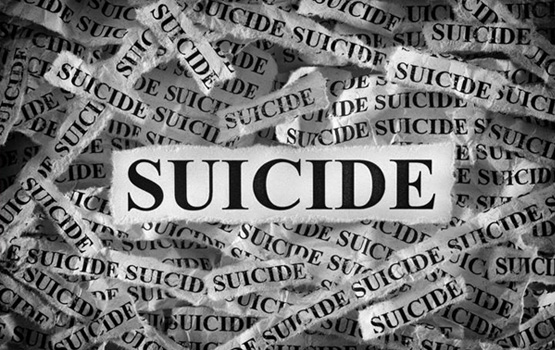Sextortion and suicide
The 10th days of September and October are marked as World Suicide Prevention and World Mental Health days, respectively.
The desire to take one’s own life (suicide) is actually a cardinal sign of an altered mental health status; thus, the two days are linked.
Quite commonly, people who feel deeply hopeless and helpless to a pervasive extent can begin to think that they are better off dead than alive.
Globally, suicide is known to be the 3rd leading cause of death among persons aged 15-29. More than two-thirds of the annual deaths by suicide among young people occur in low-and middle-income countries.
These young adults who die by suicide have many different reasons why they end up with the decision to end their sojourn on earth by themselves unceremoniously.
Some of these reasons include stresses of life such as financial pressures (indebtedness), relationship disputes, chronic pain and illness.
Some people caught up in conflict, disaster, violence, abuse or loss of a loved one can be driven to take such an unfortunate action without the needed support.
Suicide rates are also high among vulnerable groups such as prisoners in some cases.
Scammers
In recent times, several young people have taken their own lives as a result of a worrying trend where scammers usually pose as young beautiful women online.
They look out for young men on gaming sites and other platforms, befriend them and basically groom them.
By this, they chat with them, show interest in them, and try to present themselves as allies by winning their trust. Their modus operandi is to send nude images of a female (which is supposed to be theirs) and request the same from the young man.
They mount so much pressure till the victim caves in to their request. Having succumbed, they turn around to blackmail the young man with a threat to publicise his nude photos on social media platforms, where his friends and family can see his nakedness and what he’s been up to. This is what is known as sexual extortion or sextortion.
It is a form of extortion whereby others are victimised by demanding money, property, sex or some other “service” and threatening to harm him or her if the demand isn’t met.
The blackmail is often the albatross around the neck of the victim (no pun intended). The mere thought of being harmed (especially by exposing one’s nakedness and apparent misdeed) can be so devastating that some young ones have found it easier to cope with the pressure by taking their lives. By this, they will not have to deal with the shame, betrayal, torture etc.
This is another reason why internet safety among children and adolescents must not be taken for granted.
They must be taught that there are serious consequences and potentially lifelong implications (including legal implications) to sharing sexually explicit images or videos.
It is said that the internet never forgets.
This is true because the moment these private images are sent, they are out of a person’s control, and can find themselves in the wrong hands being used for the wrong purposes without opportunity for deletion from the internet.
Parents must keep the lines of communication with their children open as much as possible so they can have conversations around such issues.
Where possible, parents should make the effort to check their child’s texts, e-mail and social media accounts to know whom they are communicating with and what they are posting.
The best piece of prevention advice is not to take sexually explicit photos or videos at all.
The writer is a Child Development Expert/ Fellow at Zero-to-three Academy, USA.
E-mail: nanaesi_19@yahoo.co.uk


